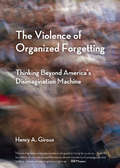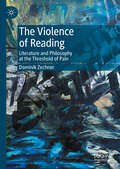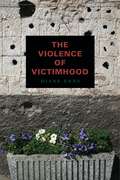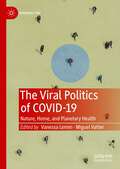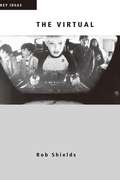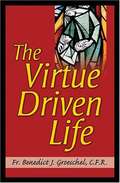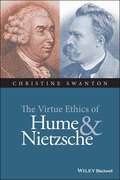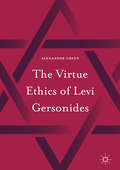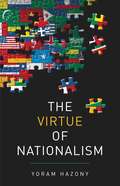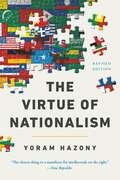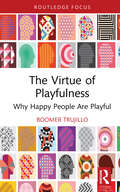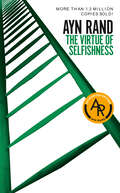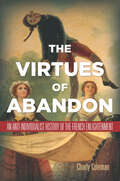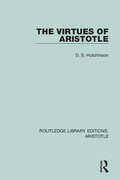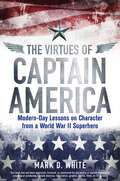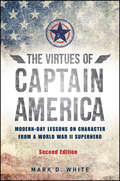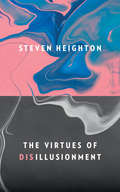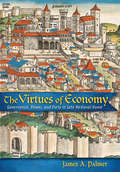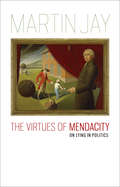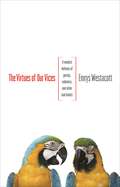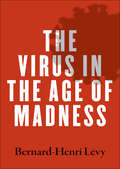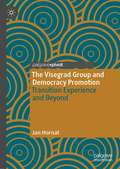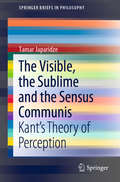- Table View
- List View
The Violence of Organized Forgetting
by Henry A. Giroux"Giroux refuses to give in or give up. The Violence of Organized Forgetting is a clarion call to imagine a different America--just, fair, and caring--and then to struggle for it."--Bill Moyers"Henry Giroux has accomplished an exciting, brilliant intellectual dissection of America's somnambulent voyage into anti-democratic political depravity. His analysis of the plight of America's youth is particularly heartbreaking. If we have a shred of moral fibre left in our beings, Henry Giroux sounds the trumpet to awaken it to action to restore to the nation a civic soul."--Dennis J. Kucinich, former US Congressman and Presidential candidate"Giroux lays out a blistering critique of an America governed by the tenets of a market economy. . . . He cites French philosopher Georges Didi-Huberman's concept of the 'disimagination machine' to describe a culture and pedagogical philosophy that short-circuits citizens' ability to think critically, leaving the generation now reaching adulthood unprepared for an 'inhospitable' world. Picking apart the current malaise of 21st-century digital disorder, Giroux describes a world in which citizenship is replaced by consumerism and the functions of engaged governance are explicitly beholden to corporations."--Publishers WeeklyIn a series of essays that explore the intersections of politics, popular culture, and new forms of social control in American society, Henry A. Giroux explores how state and corporate interests have coalesced to restrict civil rights, privatize what's left of public institutions, and diminish our collective capacity to participate as engaged citizens of a democracy.From the normalization of mass surveillance, lockdown drills, and a state of constant war, to corporate bailouts paired with public austerity programs that further impoverish struggling families and communities, Giroux looks to flashpoints in current events to reveal how the forces of government and business are at work to generate a culture of mass forgetfulness, obedience and conformity. In The Violence of Organized Forgetting, Giroux deconstructs the stories created to control us while championing the indomitable power of education, democracy, and hope.Henry A. Giroux is a world-renowned educator, author and public intellectual. He currently holds the Global TV Network Chair Professorship at McMaster University in the English and Cultural Studies Department and a Distinguished Visiting Professorship at Ryerson University. The Toronto Star has named Henry Giroux "one of the twelve Canadians changing the way we think."More Praise for Henry A. Giroux's The Violence of Organized Forgetting:"I can think of no book in the last ten years as essential as this. I can think of no other writer who has so clinically dissected the crisis of modern life and so courageously offered a possibility for real material change."--John Steppling, playwright, and author of The Shaper, Dogmouth, and Sea of Cortez"A timely study if there ever was one, The Violence of Organized Forgetting is a milestone in the struggle to repossess the common sense expropriated by the American power elite to be redeployed in its plot to foil the popular resistance against rising social injustice and decay of political democracy."--Zygmunt Bauman, author of Does the Richness of the Few Benefit Us All? among other works
The Violence of Reading: Literature and Philosophy at the Threshold of Pain
by Dominik ZechnerThe Violence of Reading: Literature and Philosophy at the Threshold of Pain expounds the scene of reading as one that produces an overwhelmed body exposed to uncontainable forms of violence. The book argues that the act of reading induces a representational instability that causes the referential function of language to collapse. This breakdown releases a type of “linguistic pain” (Scarry; Butler; Hamacher) that indicates a constitutive wounding of the reading body. The wound of language marks a rupture between linguistic reality and the phenomenal world. Exploring this rupture in various ways, the book brings together texts and genres from diverse traditions and offers close examinations of the rhetoric of masochism (Sacher-Masoch; Deleuze), the relation between reading and abuse (Nietzsche; Proust; Jelinek), the sublime experience of reading (Kant; Kafka; de Man), the “novel of the institution” (Musil; Campe), and literary suicide (Bachmann; Berryman; Okkervil River).
The Violence of Victimhood
by Diane EnnsWe know that violence breeds violence. We need look no further than the wars in the western Balkans, the genocide in Rwanda, or the ongoing crisis in Israel and Palestine. But we don’t know how to deal with the messy moral and political quandaries that result when victims become perpetrators. When the line between guilt and innocence wavers and we are confronted by the suffering of the victim who turns to violence, judgment may give way to moral relativism or liberal tolerance, compassion to a pity that denies culpability. This is the point of departure in The Violence of Victimhood and the impetus for its call for renewed considerations of responsibility, judgment, compassion, and nonviolent politics.To address her provocative questions, Diane Enns draws on an unusually wide-ranging cast of characters from the fields of feminism, philosophy, peacebuilding, political theory, and psychoanalysis. In the process, she makes an original contribution to each, enriching discussions that are otherwise constricted by disciplinary boundaries and an arid distinction between theory and practice.
The Violence of Victimhood
by Diane EnnsWe know that violence breeds violence. We need look no further than the wars in the western Balkans, the genocide in Rwanda, or the ongoing crisis in Israel and Palestine. But we don’t know how to deal with the messy moral and political quandaries that result when victims become perpetrators. When the line between guilt and innocence wavers and we are confronted by the suffering of the victim who turns to violence, judgment may give way to moral relativism or liberal tolerance, compassion to a pity that denies culpability. This is the point of departure in The Violence of Victimhood and the impetus for its call for renewed considerations of responsibility, judgment, compassion, and nonviolent politics.To address her provocative questions, Diane Enns draws on an unusually wide-ranging cast of characters from the fields of feminism, philosophy, peacebuilding, political theory, and psychoanalysis. In the process, she makes an original contribution to each, enriching discussions that are otherwise constricted by disciplinary boundaries and an arid distinction between theory and practice.
The Viral Politics of Covid-19: Nature, Home, and Planetary Health (Biolegalities)
by Vanessa Lemm Miguel VatterThis book critically examines the COVID-19 pandemic and its legal and biological governance using a multidisciplinary approach. The perspectives reflected in this volume investigate the imbrications between technosphere and biosphere at social, economic, and political levels. The biolegal dimensions of our evolving understanding of “home” are analysed as the common thread linking the problem of zoonotic diseases and planetary health with that of geopolitics, biosecurity, bioeconomics and biophilosophies of the plant-animal-human interface. In doing so, the contributions collectively highlight the complexities, challenges, and opportunities for humanity, opening new perspectives on how to inhabit our shared planet. This volume will broadly appeal to scholars and students in anthropology, cultural and media studies, history, philosophy, political science and public health, sociology and science and technology studies.
The Virtual (Key Ideas)
by Rob ShieldsThis book looks at the origins and the many contemporary meanings of the virtual. Rob Shields shows how the construction of virtual worlds has a long history. He examines the many forms of faith and hysteria that have surrounded computer technologies in recent years. Moving beyond the technologies themselves he shows how the virtual plays a role in our daily lives at every level. The virtual is also an essential concept needed to manage innovation and risk. It is real but not actual, ideal but not abstract. The virtual, he argues, has become one of the key organizing principles of contemporary society in the public realms of politics, business and consumption as well as in our private lives.
The Virtue Driven Life
by Benedict J. GroeschelSince when is being called virtuous an insult? She's quite virtuous. sounds rather prissy, doesn't it? Father Benedict J. Groeschel, C.F.R., would agree. It's a word that's gotten a bad rap, misused and misunderstood even by great thinkers, philosophers, and theologians, and mocked in the cynical soundbites of the media. Rediscover virtue as it should be understood in our lives. With wit, warmth, and wisdom, Father Groeschel reintroduces the Seven Cardinal Virtues of prudence, justice, temperance, fortitude, faith, hope, and charity. One by one he makes them meaningful for modern men and women, shaking off the dusty mantle of pretentiousness and demonstrating how each has a real role in a whole and holy life. Father Groeschel's charming conversational style entertains even as he educates and challenges us.
The Virtue Ethics of Hume and Nietzsche (New Directions in Ethics)
by Christine SwantonThis ground-breaking and lucid contribution to the vibrant field of virtue ethics focuses on the influential work of Hume and Nietzsche, providing fresh perspectives on their philosophies and a compelling account of their impact on the development of virtue ethics. A ground-breaking text that moves the field of virtue ethics beyond ancient moral theorists and examines the highly influential ethical work of Hume and Nietzsche from a virtue ethics perspective Contributes both to virtue ethics and a refreshed understanding of Hume’s and Nietzsche’s ethics Skilfully bridges the gap between continental and analytical philosophy Lucidly written and clearly organized, allowing students to focus on either Hume or Nietzsche Written by one of the most important figures contributing to virtue ethics today
The Virtue Ethics of Levi Gersonides
by Alexander GreenThis book argues that Levi Gersonides articulates a unique model of virtue ethics among medieval Jewish thinkers. Gersonides is recognized by scholars as one of the most innovative Jewish philosophers of the medieval period. His first model of virtue is a response to the seemingly capricious forces of luck through training in endeavor, diligence, and cunning aimed at physical self-preservation. His second model of virtue is altruistic in nature. It is based on the human imitation of God as creator of the laws of the universe for no self-interested benefit, leading humans to imitate God through the virtues of loving-kindness, grace, and beneficence. Both these models are amplified through the institutions of the kingship and the priesthood, which serve to actualize physical preservation and beneficence on a larger scale, amounting to recognition of the political necessity for a division of powers.
The Virtue of Nationalism
by Yoram HazonyA leading conservative thinker argues that a nationalist order is the only realistic safeguard of liberty in the world today Nationalism is the issue of our age. From Donald Trump's "America First" politics to Brexit to the rise of the right in Europe, events have forced a crucial debate: Should we fight for international government? Or should the world's nations keep their independence and self-determination? In The Virtue of Nationalism, Yoram Hazony contends that a world of sovereign nations is the only option for those who care about personal and collective freedom. He recounts how, beginning in the sixteenth century, English, Dutch, and American Protestants revived the Old Testament's love of national independence, and shows how their vision eventually brought freedom to peoples from Poland to India, Israel to Ethiopia. It is this tradition we must restore, he argues, if we want to limit conflict and hate--and allow human difference and innovation to flourish.
The Virtue of Nationalism
by Yoram HazonyIn this &“tour de force&” (National Review), the leader of the National Conservatism movement argues that nationalism is the only realistic safeguard of liberty in the world today Nationalism is the issue of our age. From Donald Trump's "America First" politics to Brexit to the rise of the right in Europe, events have forced a crucial debate: Should we fight for international government? Or should the world's nations keep their independence and self-determination? In The Virtue of Nationalism, Yoram Hazony contends that a world of sovereign nations is the only option for those who care about personal and collective freedom. He recounts how, beginning in the sixteenth century, English, Dutch, and American Protestants revived the Old Testament's love of national independence, and shows how their vision eventually brought freedom to peoples from Poland to India, Israel to Ethiopia. It is this tradition we must restore, he argues, if we want to limit conflict and hate -- and allow human difference and innovation to flourish.
The Virtue of Playfulness: Why Happy People Are Playful (Routledge Focus on Philosophy)
by boomer trujilloThis book argues that in order for people to live well, they must develop a virtue of playfulness. Inspired by Aristotle, the book draws on work from philosophy, classics, history, biology, psychology, and media studies to understand the place of play and playfulness in a good life.Many philosophers have written about play, from Presocratics such as Heraclitus to contemporary philosophers such as Bernard Suits. Some champion play as the most crucial value in life. Others deride it and warn strongly against it. This book evaluates the research on how play and playfulness bear on living a good life and becoming a good person. Its main argument is that in order to understand play as an action, we must understand playfulness as a virtue in the lives of good people. The author develops a theory of playfulness from an Aristotelian perspective. Like Aristotle sees the virtues as necessary for a happy life, the author argues that playfulness is necessary for living well. And just as Aristotle offers multifaceted characterizations of core virtues, the author argues that playfulness includes aspects of seriousness, creativity, humility, optimism, and sociality. Playful people take play seriously, learn new skills, overcome failure, strive for success, and keep others in mind. As a result, playful people have a better shot at living well.The Virtue of Playfulness is an accessible, empirically informed, and detailed treatment of the philosophy of playfulness. It will appeal to scholars and students in philosophy and related disciplines who are interested in virtue ethics, moral psychology, philosophy of games, philosophy of sport, and ancient philosophy.
The Virtue of Selfishness: A New Concept Of Egoism (Signet Ser.)
by Ayn RandAyn Rand here sets forth the moral principles of Objectivism, the philosophy that holds human life--the life proper to a rational being--as the standard of moral values and regards altruism as incompatible with man's nature, with the creative requirements of his survival, and with a free society. More than 1 million copies sold!From the Paperback edition.
The Virtue of Selfishness: A New Concept of Egoism
by Ayn RandAyn Rand regards altruism as incompatible with man's nature that man cannot survive alone with. She sets forth the moral principles of objectivism as the philosophy that holds man's life as the standard of moral values.
The Virtues of Abandon: An Anti-Individualist History of the French Enlightenment
by Charly ColemanFrance in the eighteenth century glittered, but also seethed, with new goods and new ideas. In the halls of Versailles, the streets of Paris, and the soul of the Enlightenment itself, a vitriolic struggle was being waged over the question of ownership#151;of property, of position, even of personhood. Those who championed man's possession of material, spiritual, and existential goods faced the successive assaults of radical Christian mystics, philosophical materialists, and political revolutionaries. This book traces the aims and activities of these three seemingly disparate groups, and the current of anti-individualism that permeated theology, philosophy, and politics throughout the period. Fired by the desire to abandon the self, men and women sought new ways to relate to God, nature, and nation. They joined illicit mystic cults that engaged in rituals of physical mortification and sexual license, committed suicides in the throes of materialist fatalism, drank potions to induce consciousness-altering dreams, railed against the degrading effects of unfettered consumption, and ultimately renounced the feudal privileges that had for centuries defined their social existence. The explosive denouement was the French Revolution, during which God and king were toppled from their thrones. We credit the French Enlightenment with the formal recognition of autonomous individualism, and the Revolution with inscribing the individual's rights into law. This book contends, however, that these rights arose as much out of calls for violent self-sacrifice as for the individual pursuit of happiness. Revealing the religious underpinnings of the Enlightenment even in its materialist, atheistic forms, The Virtues of Abandon offers an original, audacious history of eighteenth-century France.
The Virtues of Aristotle (Routledge Library Editions: Aristotle #6)
by D. S. HutchinsonOriginally published in 1986. Both moral philosophers and philosophical psychologists need to answer the question ‘what is a virtue?’ and the best answer so far give is that of Aristotle. This book is a rigorous exposition of that answer. The elements of Aristotle’s doctrine of virtue are scattered throughout his writings; this book reconstructs his complex and comprehensive doctrine in one place. It also covers Aristotle’s views about choice, character, emotions and the role of pleasure and pain in virtue. The celebrated function (ergon) is considered carefully as well as the doctrine of virtue being related to Aristotle’s metaphysics and categories.
The Virtues of Captain America
by Mark D. WhiteThe first look at the philosophy behind the Captain America comics and movies, publishing in advance of the movie release of Captain America: The Winter Solider in April 2014.In The Virtues of Captain America, philosopher and long-time comics fan Mark D. White argues that the core principles, compassion, and judgment exhibited by the 1940's comic book character Captain America remain relevant to the modern world. Simply put, "Cap" embodies many of the classical virtues that have been important to us since the days of the ancient Greeks: honesty, courage, loyalty, perseverance, and, perhaps most importantly, honor. Full of entertaining examples from more than 50 years of comic books, White offers some serious philosophical discussions of everyone's favorite patriot in a light-hearted and accessible way.Presents serious arguments on the virtues of Captain America while being written in a light-hearted and often humorous toneIntroduces basic concepts in moral and political philosophy to the general readerUtilizes examples from 50 years of comics featuring Captain America, the Avengers, and other Marvel superheroesAffirms the value of "old-fashioned" virtues for the modern world without indulging in nostalgia for times long passedReveals the importance of the sound principles that America was founded uponPublishing in advance of Captain America: The Winter Soldier out in April 2014.
The Virtues of Captain America: Modern-Day Lessons on Character from a World War II Superhero
by Mark D. WhiteLearn how Captain America's timeless ethical code is just as relevant in the twenty-first century as it was during the 1940s Captain America, or simply “Cap,” provides an example of the virtues that define personal excellence, as well as the ideals and principles upon which the United States of America was founded. In The Virtues of Captain America, philosopher and long-time comics fan Mark D. White shows us that this fictional superhero's “old-fashioned” moral code is exactly what we need today to restore kindness and respect in our personal and civic lives. Presenting Captain America's personal morality within a virtue ethics framework, the book opens with an introduction to basic concepts in moral and political philosophy and addresses issues surrounding the use of fictional characters as role models. The following chapters examine Captain America in detail, exploring the individual virtues that Cap exemplifies, the qualities that describe his moral character, his particular brand of patriotism, his ongoing battle with fascism, his personal vision of the “American Dream,” his moral integrity and sense of honor, and much more. Now in its second edition, The Virtues of Captain America is updated to include all the new developments in Captain America's saga, including new examples from the last ten years of Captain America's appearances in Marvel Comics. New coverage of the recent “Secret Empire” storyline, in which Captain America was brainwashed by the fascist organization Hydra, features new sections examining the nature of fascism and how Captain America's character and virtues were affected by the change. This edition also offers new material on Sam Wilson—formerly Captain America's partner the Falcon who recently became Captain America himself—and how his interpretation of the role compares to Steve Rogers'. Showing how we can be better people if we pay attention to the choices made by the Sentinel of Liberty, The Virtues of Captain America: Examines the moral and political philosophy behind 80 years of Captain America comics and movies in a light-hearted, often humorous tone Demonstrates that the core principles and judgment exhibited by Captain America in the 1940s remain relevant in the twenty-first century Describes the basic themes of Captain America's ethics, such as courage, humility, perseverance, honesty, and loyalty Illustrates how Captain America stands for the basic ideals of America, not its politics or government Requiring no background in philosophy or familiarity with the source material, the second edition of The Virtues of Captain America: Modern-Day Lessons on Character from a World War II Superhero remains a must-read for everyone wanting to make ethical decisions in complex real-world situations and tackle the personal and political issues of today with integrity and respect.
The Virtues of Disillusionment
by Steven HeightonMost people go through life chasing illusions of success, fame, wealth, happiness, and few things are more painful than the reality-revealing loss of an illusion. But if illusions are negative, why is the opposite, being disillusioned, also negative? In this essay based on his inaugural writer-in-residence lecture at Athabasca University, internationally acclaimed writer Steven Heighton mathematically evaluates the paradox of disillusionment and the negative aspects of hope. Drawing on writers such as Herman Melville, Leonard Cohen, Kate Chopin, and Thich Nhat Hanh, Heighton considers the influence of illusions on creativity, art, and society. This meditation on language and philosophy reveals the virtues of being disillusioned and, perhaps, the path to freedom.
The Virtues of Economy: Governance, Power, and Piety in Late Medieval Rome
by James A. PalmerThe humanist perception of fourteenth-century Rome as a slumbering ruin awaiting the Renaissance and the return of papal power has cast a long shadow on the historiography of the city. Challenging this view, James A. Palmer argues that Roman political culture underwent dramatic changes in the late Middle Ages, with profound and lasting implications for city's subsequent development. The Virtues of Economy examines the transformation of Rome's governing elites as a result of changes in the city's economic, political, and spiritual landscape.Palmer explores this shift through the history of Roman political society, its identity as an urban commune, and its once-and-future role as the spiritual capital of Latin Christendom. Tracing the contours of everyday Roman politics, The Virtues of Economy reframes the reestablishment of papal sovereignty in Rome as the product of synergy between papal ambitions and local political culture. More broadly, Palmer emphasizes Rome's distinct role in evolution of medieval Italy's city-communes.
The Virtues of Mendacity: On Lying in Politics (Richard Lectures)
by Martin JayWhen Michael Dukakis accused George H. W. Bush of being the "Joe Isuzu of American Politics" during the 1988 presidential campaign, he asserted in a particularly American tenor the near-ancient idea that lying and politics (and perhaps advertising, too) are inseparable, or at least intertwined. Our response to this phenomenon, writes the renowned intellectual historian Martin Jay, tends to vacillate--often impotently--between moral outrage and amoral realism. In The Virtues of Mendacity, Jay resolves to avoid this conventional framing of the debate over lying and politics by examining what has been said in support of, and opposition to, political lying from Plato and St. Augustine to Hannah Arendt and Leo Strauss. Jay proceeds to show that each philosopher's argument corresponds to a particular conception of the political realm, which decisively shapes his or her attitude toward political mendacity. He then applies this insight to a variety of contexts and questions about lying and politics. Surprisingly, he concludes by asking if lying in politics is really all that bad. The political hypocrisy that Americans in particular periodically decry may be, in Jay's view, the best alternative to the violence justified by those who claim to know the truth.
The Virtues of Our Vices: A Modest Defense of Gossip, Rudeness, and Other Bad Habits
by Emrys WestacottThe hidden value of some of our everyday vicesAre there times when it's right to be rude? Can we distinguish between good and bad gossip? Am I a snob if I think that NPR listeners are likely to be better informed than devotees of Fox News? Does sick humor do anyone any good? Can I think your beliefs are absurd but still respect you?In The Virtues of Our Vices, philosopher Emrys Westacott takes a fresh look at important everyday ethical questions—and comes up with surprising answers. He makes a compelling argument that some of our most common vices—rudeness, gossip, snobbery, tasteless humor, and disrespect for others' beliefs—often have hidden virtues or serve unappreciated but valuable purposes. For instance, there are times when rudeness may be necessary to help someone with a problem or to convey an important message. Gossip can foster intimacy between friends and curb abuses of power. And dubious humor can alleviate existential anxieties.Engaging, funny, and philosophically sophisticated, The Virtues of Our Vices challenges us to rethink conventional wisdom when it comes to everyday moral behavior.
The Virus in the Age of Madness
by Bernard-Henri LevyAs seen on CNN's Fareed Zakaria GPS Forget the world that came before. The author of American Vertigo serves up an incisive look at how COVID-19 reveals the dangerous fault lines of contemporary society. With medical mysteries, rising death tolls, and conspiracy theories beamed minute by minute through the vast web universe, the coronavirus pandemic has irrevocably altered societies around the world. In this sharp essay, world-renowned philosopher Bernard-Henri Lévy interrogates the many meanings and metaphors we have assigned to the pandemic—and what they tell us about ourselves. Drawing on the philosophical tradition from Plato and Aristotle to Lacan and Foucault, Lévy asks uncomfortable questions about reality and mythology: he rejects the idea that the virus is a warning from nature, the inevitable result of global capitalism; he questions the heroic status of doctors, asking us to think critically about the loci of authority and power; he challenges the panicked polarization that dominates online discourse. Lucid, incisive, and always original, Lévy takes a bird&’s-eye view of the most consequential historical event of our time and proposes a way to defend human society from threats to our collective future.
The Visegrad Group and Democracy Promotion: Transition Experience and Beyond (The Theories, Concepts and Practices of Democracy)
by Jan HornatThis book explores the substance and strategies of democracy promotion conducted by the Visegrad Group states (V4) – the Czech Republic, Hungary, Poland, and Slovakia. As these states are currently deemed to face democratic backsliding over thirty years after their own democratic transformations, the book discusses how democracy promotion is related to the four countries’ understanding of liberalism and democracy and to their political cultures. It also addresses the question of what motivates the V4 states to engage in the politically sensitive activities of democracy assistance and how they intend to share their own experience and know-how of the democratic transformation process. The book concludes by discussing the possible future developments in the respective states’ democracy promotion agendas. Examining the strategies, substance, and the domestic discourse related to the Visegrad states’ democracy promotion policies, the book presents a much-needed reflection on a niche subject in the foreign policy agendas of these post-communist states for academics and practitioners alike.
The Visible, the Sublime and the Sensus Communis: Kant’s Theory of Perception (SpringerBriefs in Philosophy)
by Tamar JaparidzeThis book argues that Kant develops a theory of perception in the Critique of Judgment from which one can redefine his entire project, viewing and using aesthetics as its backbone, from the transcendental aesthetic of the First Critique to the Critique of Taste in the Third. The author shows us how Kant exonerates the role of faculties that account for such judgments linked by inner senses, inclusive of sensus communis. By re-examining the role of the aesthetic within Kant's critical philosophy, the compelling force of the aesthetic turn is revealed in modern philosophy. The text includes Heidegger’s, Hegel’s and Diderot's complex relationship to Kant in this context.This text provides important scholarship for those interested in the Kantian influence on German Idealism, the aesthetic turn in the continental tradition, especially the Frankfurt school, and more generally, those interested in the encounter between philosophy and art in this historical context.
